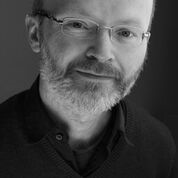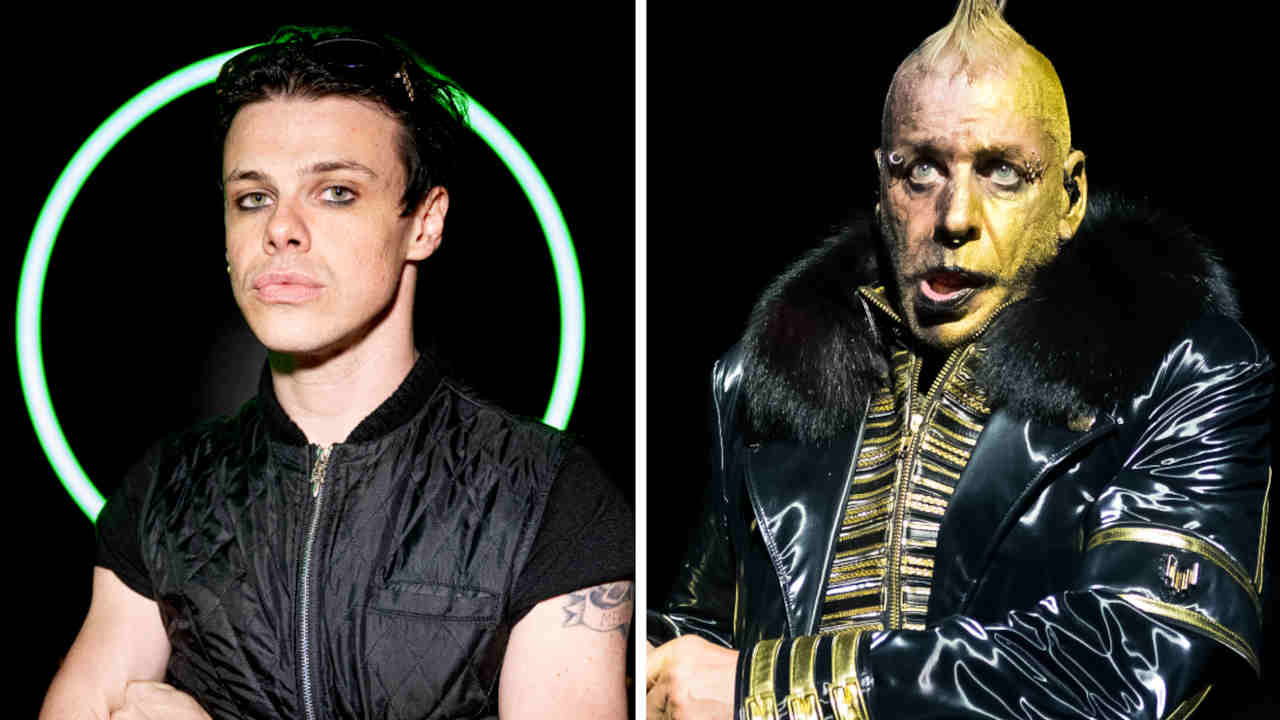Why Dropkick Murphys stand for hard work and doing things the right way
Rebels with a cause: Holding out a hand to the the deserving, the disenfranchised and the down and out, Boston’s Dropkick Murphys are on a mission
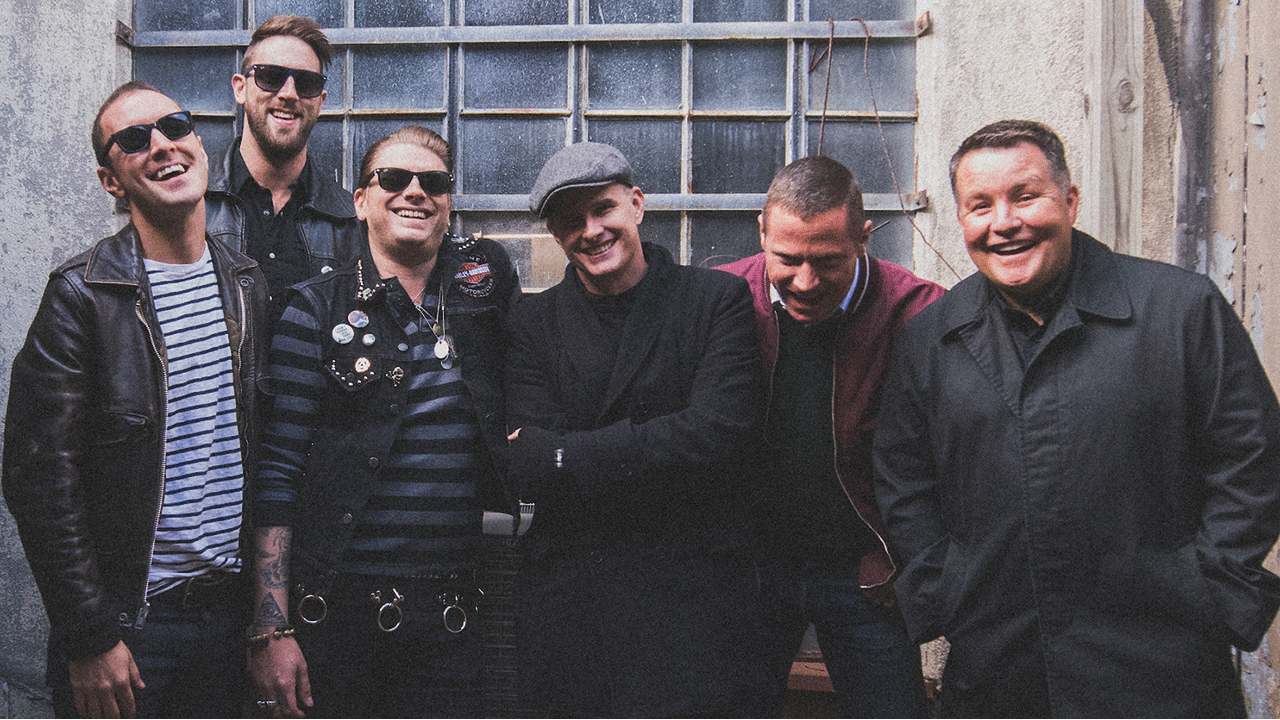
The cow skeleton in the sand told the Dropkick Murphys they were a long way from home. That plus the wildcats and snakes. Few bands have been so tied to their home city as Boston’s original Celtic punk rockers, who previously had never recorded outside its familiar streets. But in 2016, 20 years and nine studio albums into a career in which they have collaborated with Bruce Springsteen and film director Martin Scorsese, they felt the need to recommit. So they put the distractions of family and friends behind them to decamp to Sonic Ranch Studios in the desert east of El Paso, Texas. The Mexican border that was so exercising their Dropkicks-loathed president elect was nearby. So was a whole lot of nothing.
“The studio was in the second-biggest pecan farm in America,” explains guitarist Tim Brennan, sitting with me and singer Al Barr in London. “As people from New England it was very strange. There were acres of pecan trees – and sand. We were told that cow had probably wandered off its ranch and died of thirst. It was a thirty-minute drive to anywhere other than a dollar store and a gas station that looked dangerously close to running out of gas. There was something serene about it. And in two and a half weeks, we were done.”
Barr, Dropkick Murphys’ lead singer since replacing Mike McColgan in 1998, is tattooed right up his arms, lean and rangy, the black-framed glasses and the white hair beneath his cap suggesting the disciplined 48-year-old family man, the bratty, rabble-rousing wild man now a thing of past. Brennan, his bandmate since 2003, is bearded and more affably amused. The band’s new album, 11 Short Stories Of Pain & Glory, typically ranges from trad Irish opener The Lonesome Boatman to the bar-room-blitzing yarn I Had A Hat. But what draws their desert record together is a social conscience that has seen the band fervently support unions, play local firemen’s funerals and raise funds for the victims of 2013’s Boston Marathon bombing (commemorated on the album’s quietly unifying anthem 4-15-13). Their Claddagh Fund has raised more than two million dollars, often for addiction recovery, and their desire to help friends and neighbours inspired many of the new songs, not least an unlikely cover of You’ll Never Walk Alone, a song for decades sung by Liverpool FC supporters.
“It became less of an English football thing and more of a hopeful message,” Brennan explains. “There’s a really bad drug epidemic going on in America at the moment, especially where we are in New England. One of the guys in our band was going to his dozenth funeral for a guy that had overdosed. [That was Barr, having to bury his brother-in-law.] He heard the song and it took on a different meaning. Lyrically and musically it’s got a triumphant sound, but even in the Gerry And The Pacemakers version those verses have that melancholy feel. Instead of telling people the fact that you’re a drug addict makes you a fucking creep, we’re trying to get the message out that it’s okay to ask for help.”
“That theme is all throughout the record,” says Barr. “That’s what Dead End Kids [aka Rebels With A Cause] is all about. Because you’re battling a demon that’s winning already, and everybody needs a hand-up. Society’s answer so many times is to keep ’em medicated until they die, or to write ’em off, put ’em in prison. It’s death or jail. But there’s a third option: recovery. We need to have more conversations about the opiate crisis, and Big Pharma looking at the dollar signs and stepping over the bodies to cash the cheques. We wanted to hit that message.”
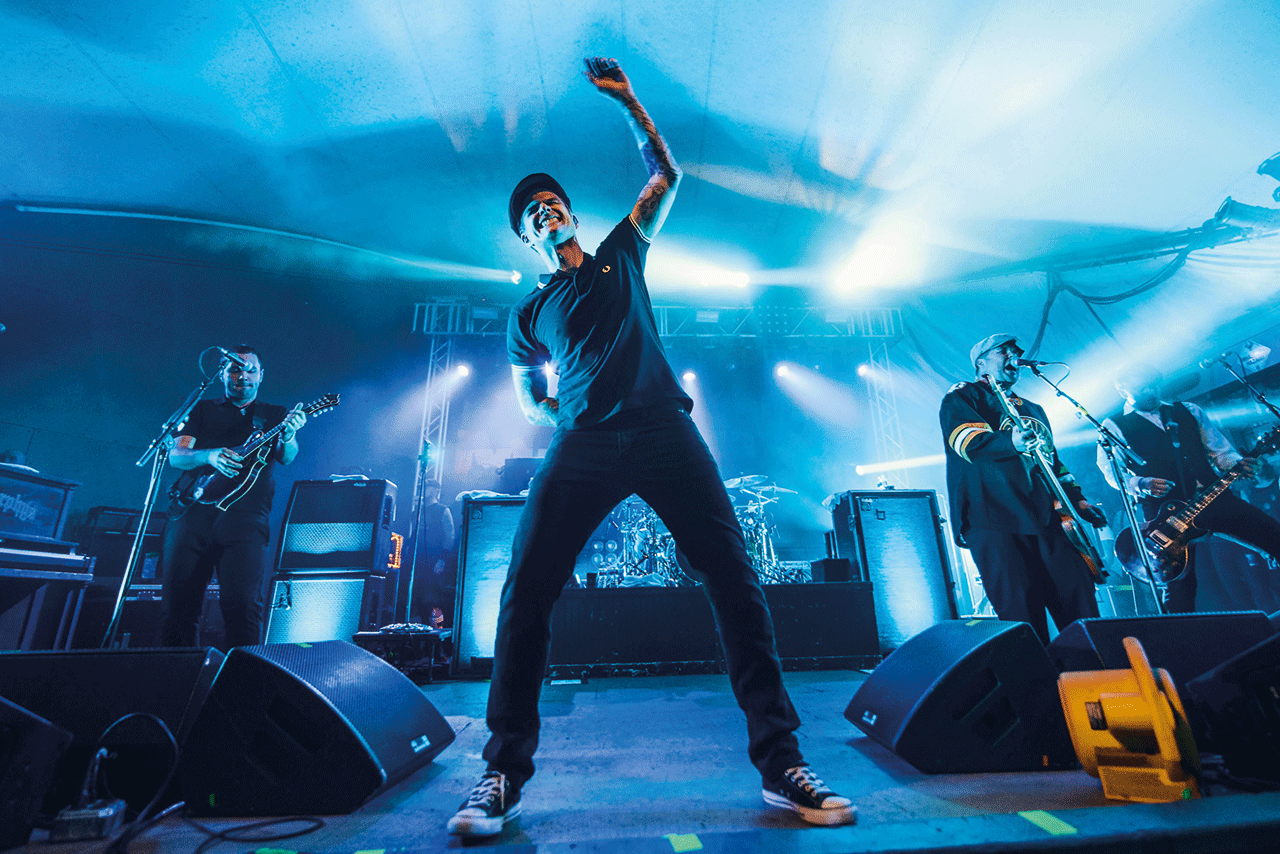
Barr and Brennan are in London to take care of business, flying back to the US after they’ve talked to Classic Rock. That’s been the band’s hallmark since their singer-songwriter Ken Casey founded them, when relentless drive compensated for their rawness. “We come from families where we’re meant to work,” he says. They became a punk phenomenon in Boston, graduating to regular gigs at the dingy basement club The Rat, where local bands including the Pixies earned their stripes before them.
“My band The Bruisers predated the Dropkicks by almost ten years,” Barr says. “We used to get the call all the time to open up for national acts. And the phone stopped ringing. Then Mike [McColgan] left and I joined the band, and I realised that I was with people who were giving their all for something. Because I had tried that for ten years and seventeen line-up changes with The Bruisers, and it was like pushing a square up a hill. When I joined we practised seven days a week, eight hours a day. And at gigs it was: we don’t talk between songs. Just play, play, play. It was literally take a sip of water, next song. It’s changed vastly, but back then it was: ‘We don’t like talking, we don’t have anything really much to say. We just get up there and do our thing, and then we get the fuck out. It’s a toot and a wave.’ They were so tight.”
Sign up below to get the latest from Classic Rock, plus exclusive special offers, direct to your inbox!
The Dropkicks were everything Barr had ever wanted from a band. “This was a job for all of us,” he says. “We weren’t making money that a job would pay you. My wife supported me. But I felt like there was a vision, and there was a goal. ‘We’re going to make this record, and we’re going to tour every town, village and city, because that’s the only way people are even going to know who we are.’ I always had one or two guys in The Bruisers willing to do that. But you’re only as strong as your weakest link. When I joined the Murphys there weren’t any weak links.”
“Missing links, maybe…” Brennan offers, laughing, remembering his days as a just a Dropkicks fan. “I remember the first time I saw the Dropkicks, when The Foggy Dew was the intro as the lights went down. Growing up I was a big fan of Irish music. My mom and I used to listen to that Chieftains record with Sinead O’Connor and Sting and Ry Cooder [1995’s The Long Black Veil]. It was very cool and epic and made it a show.”
Despite Boston’s large Irish-American population, no one else was splicing The Clash and Stiff Little Fingers with Irish traditional music’s sometimes riotous storytelling. The Pogues were the obvious bridge between those influences and the Dropkicks’ initially more hardcore, borderline Oi sound. They gradually added the bagpipes, tin whistles and banjos familiar to them from weddings and wakes.
“I got turned onto The Pogues when I was about fourteen, by the only other person I knew who was into them,” Brennan says, considering the band’s uniqueness in Boston. “And he subsequently brought in [Dropkick Murphys’ 1998 debut album] Do Or Die and introduced me to them. The Dropkicks were clearly influenced by The Pogues, but more in spirit, because their sound was so different.”
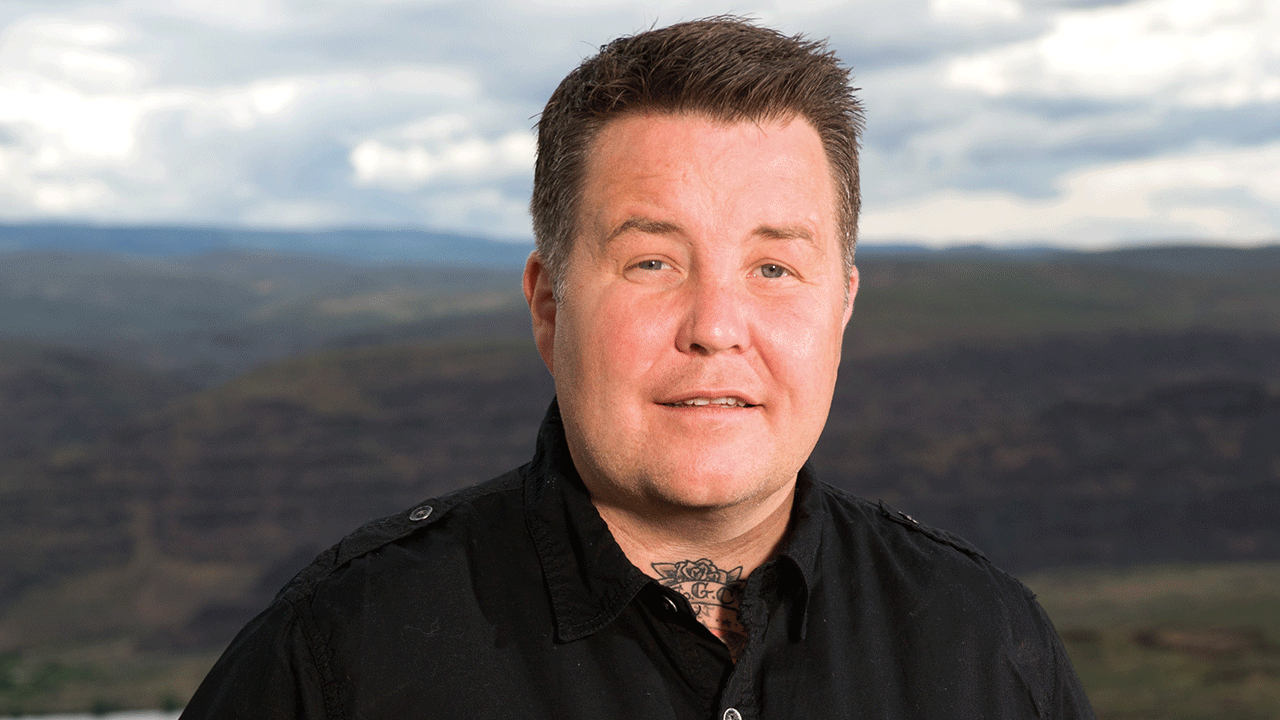
“When I started with this band, there was no genre called Celtic punk,” says Barr. “When we were asked to describe our music, Rick Barton [original guitarist] would just loudly go: ‘We’re Irish punk rock from Boston, Massachusetts.’”
Barton could be relied on for blunt, buttoned-down Boston Irish perspective.
“Another time, me, Matt [Kelly, drummer] and Kenny were being interviewed, and Barton was walking through as we were asked about sharing feelings. We all stopped, because we didn’t know how to talk about it. Ken goes: ‘What do we do with feelings, Barty?’ And Barty didn’t even look up. He said: [cavern-deep voice] ‘Stuff ’em down’ and kept walking.”
Barton left the band during the sessions for the Dropkicks’ third album, 2000’s Sing Loud, Sing Proud, which included a guest appearance by formative influence Shane MacGowan, singer with The Pogues.
“At the recording session, Ken would have to literally rip the cigarette out of Shane’s mouth, and he would spit out the words,” Barr recalls. “Darren Hill was our manager at the time. Because Darren had this head of hair that looked a bit like Springsteen, Shane kept saying to him: [raddled voice] ‘Bruce, are you on this one, too?’ And we had to get him weed. That was his one thing. I had some connections in the city at the time and made sure that was delivered.”
How did Barr and MacGowan get on?
“Well, I attacked him,” Barr replies. “Not at the recording session. I attacked him a couple of years later, when we were playing the Fleadh festival [in London’s Finsbury Park]. Shane had just rejoined The Pogues after ten years. It was the year that Joe Strummer died. And we saw Joe that day. Joe and I were hanging out, then Joe said: ‘Oh, hang on, The Pogues are on.’ And we sat at the side of the stage and watched The Pogues together.”
This blissful camaraderie with one hero was followed, several hours of booze later, by a less happy exchange with another. “As we were coming into the hotel,” Barr recalls, “Shane was in the bar with his girlfriend, and he waved us over and we sat down. I don’t remember what happened, but I’m told I tore my shirt off and said: ‘Who’s got beef!’ And I went over the table at him, and this friend of ours threw me over his shoulders and took me to bed. Ken was like: ‘I almost wanted you to hit Shane. But I was worried you were also going to hit his girlfriend…’”
No doubt MacGowan – who once told me you “get used to” bouncing out of the back of fast cars – would have taken all this in his stride. Barr, though, later quit drinking.
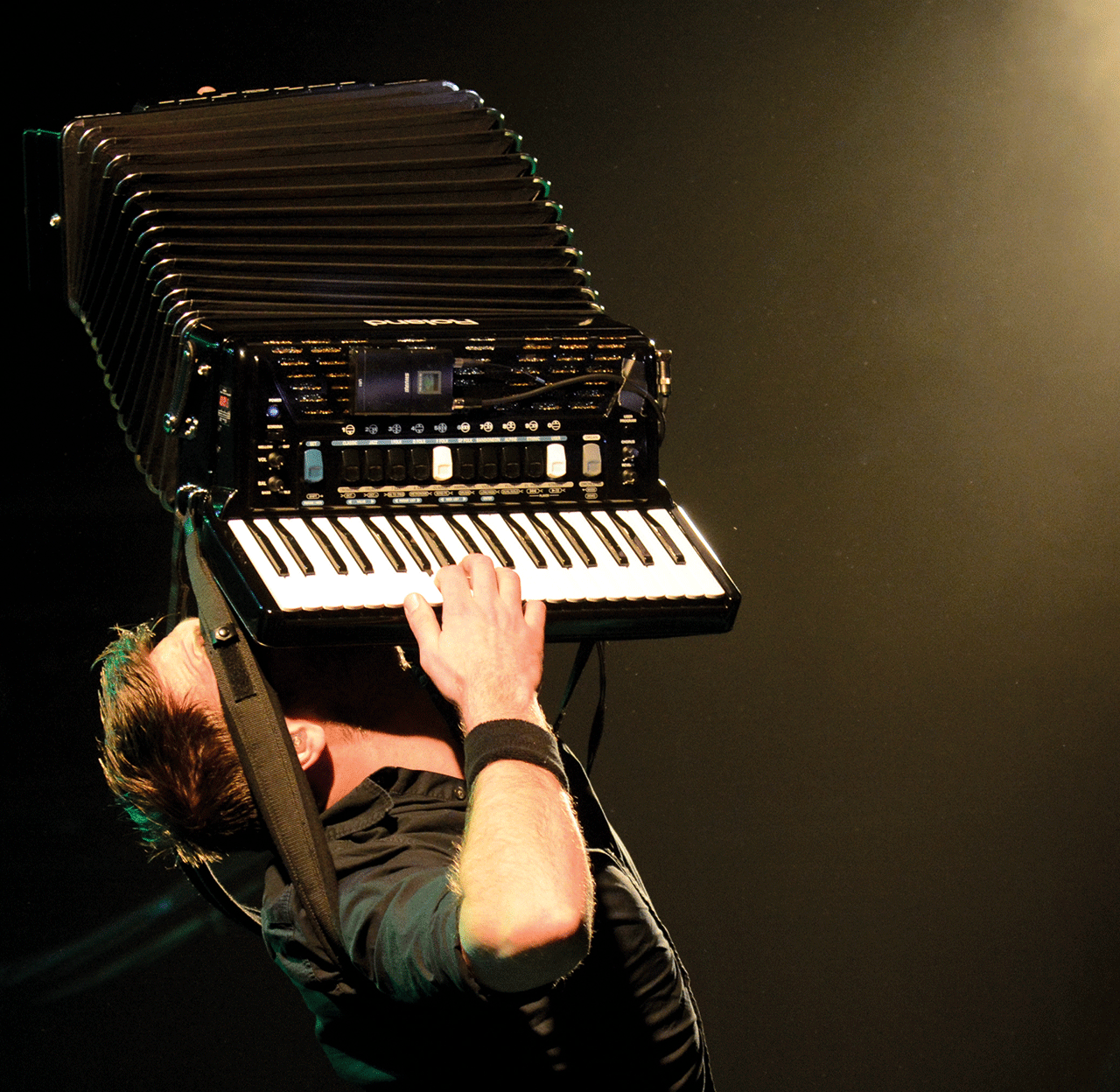
Dropkick Murphys’ constant work paid off in 2006, when film director Martin Scorsese left his usual Italian Mob milieu for The Departed, the lightly disguised tale of Boston Irish gang boss Whitey Bulger. Boston’s king punks got on the soundtrack with I’m Shipping Up To Boston, a punk shanty with Woody Guthrie lyrics, from the previous year’s The Warrior’s Code.
“It gave us exposure,” Brennan says of the effect Scorsese had on their lives. “We played that song to folded arms for a year and a half after The Warrior’s Code came out. And then having it in the movie worked like a good pop video. There was a time then when I’d look out and see some people who were puzzled by eighty-five minutes of our gigs, then we’d end with Shipping Up To Boston and they were: ‘Yeah! Alright!’”
As Barr found out and approved of, Ken Casey founded the band on hard graft. Is a work ethic still the fundamental one for them?
“Absolutely,” says Brennan. “And that even speaks to the musicianship in the band. We’re a bunch of, for the most part, self-taught guys who have just put in the hours to figure out the slightest bit of what we do. Yeah, it’s exactly that.”
One song on the new album, Paying My Way, partly holds out a hand to the addicts they see around them. But it also seems to be about the Murphys themselves, and how far these now highly moral wild men have come over 20 years.
“It can most certainly be looked at like that,” Brennan agrees. “Just the idea of making your way up. I guess paying your dues. And maybe not getting there the fastest way, but getting there the right way.”
11 Short Stories Of Pain & Glory is out now via Born & Bred Records
Dropkick Murphys' Al Barr: The First Record I Ever Bought
Dropkick Murphys - 11 Short Stories Of Pain & Glory album review
Nick Hasted writes about film, music, books and comics for Classic Rock, The Independent, Uncut, Jazzwise and The Arts Desk. He has published three books: The Dark Story of Eminem (2002), You Really Got Me: The Story of The Kinks (2011), and Jack White: How He Built An Empire From The Blues (2016).
